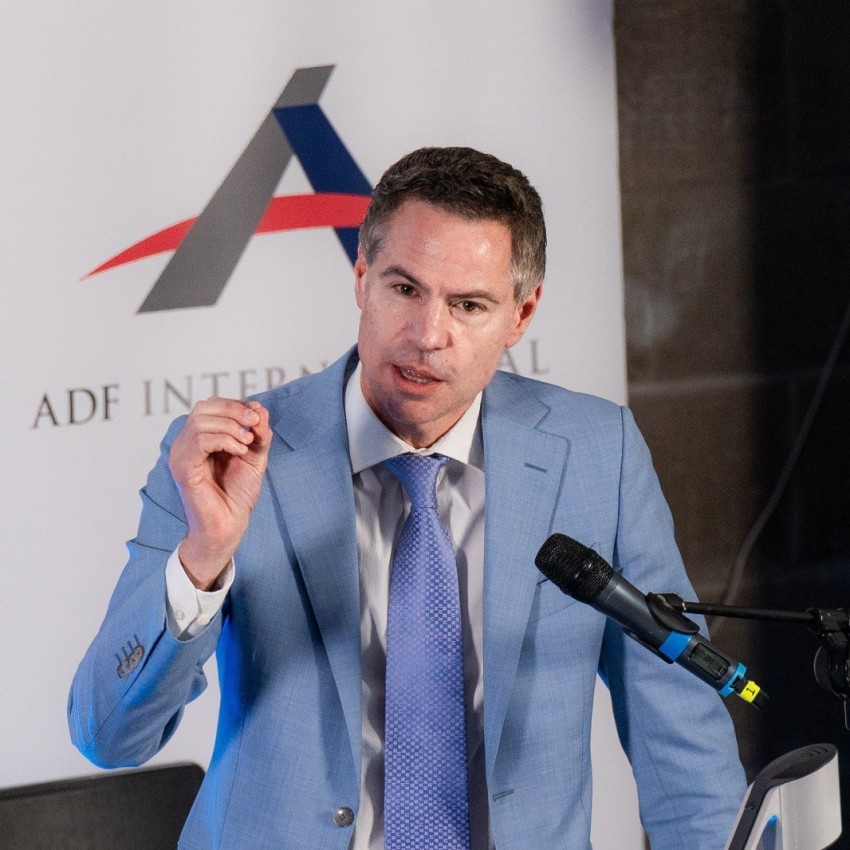Ireland’s hate speech law could ‘censor entire internet,’ Michael Shellenberger warns

As the Irish Parliament deliberates on a contentious “hate speech” bill, international bestselling author Michael Shellenberger joined global voices last week to raise alarm over the potential global repercussions of the legislation. Shellenberger, known for his investigative work in the “Twitter Files,” starkly criticized the bill at the Irish Parliament and the Ireland Free Speech Summit, suggesting it could “censor the entire internet.”
The proposed legislation, debated intensely in Ireland, includes severe penalties for possessing material deemed capable of inciting “hatred,” according to the legal advocacy group ADF International, which notes that offenders could face up to five years in prison.
Moreover, the bill extends its reach to social media, holding accountable directors and executives of platforms with international headquarters in Ireland, such as X and Facebook, for hosting anything that could be deemed as “hate speech.”
Speaking at the Irish Parliament, Shellenberger warned against the bill’s potential to stifle free discussion.
“The world is watching Ireland. The censorial ‘hate speech bill’, if passed, would not only shut down conversation nationally — as the home of various international social media headquarters, it would have a global impact on what we can all discuss online,” he was quoted as saying. “A sweeping ban on undefined ‘hate’ gives authorities the power to determine which viewpoints are acceptable to voice. World history warns us that such power can be easily abused.”
The legislation does not clearly define what constitutes “hate,” leaving it up to authorities’ discretion to decide which viewpoints are permissible. This vagueness has spurred significant concern among various stakeholders, including legal experts, free speech advocates and the public.
In a debate in the Senate recently, Irish Green Party Senator Pauline O’Reilly sought to justify the proposed law. “If a person’s views on other people’s identities make their lives unsafe and insecure, and cause them such deep discomfort that they cannot live in peace, our job as legislators is to restrict those freedoms for the common good,” The Telegraph quoted her as saying. “One cannot do and say whatever one likes in our society.”
However, a recent national poll commissioned by ADF International and conducted by Whitestone Insight revealed that 25% of Irish citizens feel that their free speech rights are being eroded, with 90% affirming that free speech is “very important” to them.
Shellenberger also spoke at the Free Speech Summit in Dublin, where various other speakers, including Irish barrister Lorcan Price and Independent Senators Rónán Mullen and Sharon Keogan, criticized the bill’s potential to induce a chilling effect on free expression.
Mullen said, “When it comes to democracy, I believe in it. When it comes to the right to test each other’s ideas, I believe in it. And we can’t do that if we’re operating under the chilling fear of giving offense to somebody who wraps that up as hatred, claims that it’s against the law, attacks you as a mob online, causes social media companies to take down your stuff so that you’ve failed to communicate before you even begin to try.”
The senator added, “If nobody was ever prosecuted under this law, the process itself would become the punishment.”
The summit, which saw a full house, also featured voices from diverse backgrounds, such as “Father Ted” screenwriter Graham Linehan and Cambridge academic James Orr, all underscoring the importance of robust debate and discourse in a democratic society.
Lorcan Price, an Irish barrister and legal counsel for ADF International, criticized the proposed legislation, describing it as one of the “worst examples of censorship in the modern West.”
Privacy concerns were also highlighted, with provisions in the bill mandating individuals to surrender passwords to electronic devices during investigations.
The global opposition to the bill has included critical voices like Donald Trump Jr. and Elon Musk, who have expressed grave concerns about the bill’s reach and its impact on free speech.



























